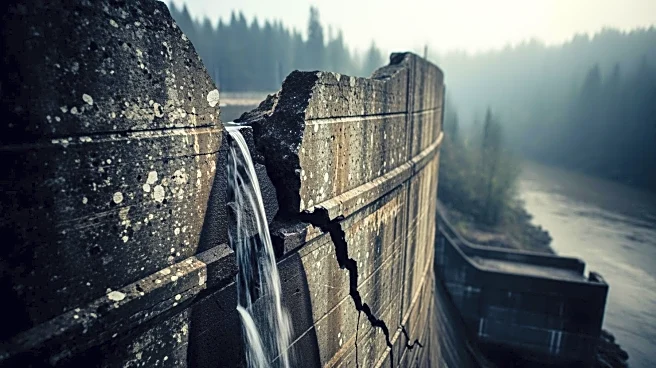What's Happening?
A U.K. High Court has ruled that BHP, an Australian multinational mining company, is liable for the 2015 collapse of the Fundão tailings dam in Mariana, Brazil. The disaster resulted in the deaths of 19 people and released 40 million cubic meters of toxic
mine tailings, affecting towns and waterways over a 675-kilometer stretch. Judge Finola O’Farrell determined that negligence and lack of skill contributed to the dam's failure, which is considered one of Brazil's largest environmental disasters. The case, representing over 610,000 people, 32 municipalities, and 1,400 businesses, is the largest environmental class action lawsuit in U.K. history. BHP, which owns 50% of the dam's operator Samarco, plans to appeal the decision.
Why It's Important?
The ruling has significant implications for corporate accountability in environmental disasters. It underscores the potential for international legal systems to hold companies accountable for actions that have cross-border impacts. The decision could set a precedent for future environmental litigation, particularly involving multinational corporations. The affected Brazilian communities, who have suffered from contaminated water and land, stand to gain from potential compensation. The case also highlights the ongoing environmental and health impacts, as recent studies show elevated levels of toxic metals in the region's wildlife.
What's Next?
The next phase of the trial will determine the compensation amount, with claimants seeking $47 billion. Vale, co-owner of Samarco, has agreed to pay half of any awarded compensation. BHP's appeal could delay proceedings, but the ruling may encourage other affected parties to pursue similar legal actions. The outcome could influence corporate practices and regulatory policies regarding environmental safety and disaster prevention.
















